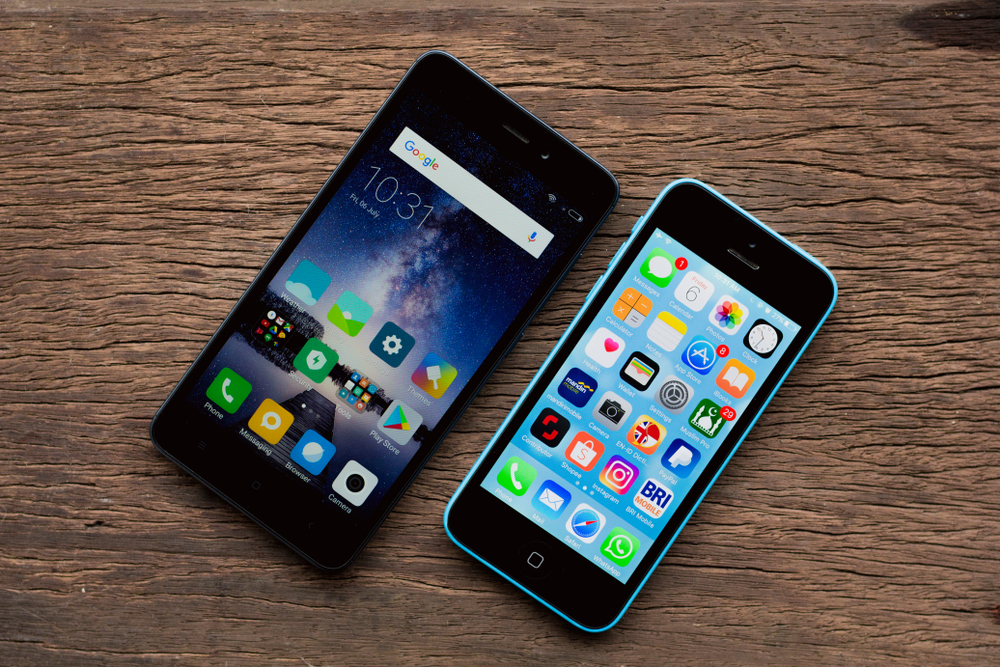
With the increasing popularity of smartphones, mobile apps have become an integral part of our daily lives. From communication to entertainment, there's an app for almost everything. However, with millions of apps available in various app stores, standing out from the crowd and attracting users can be a daunting task. That's where mobile app marketing comes into play. In this article, we will explore some effective tips and tricks to master the art of mobile App Store or Google Play app promotion.
The App Store Optimization (ASO) Game
Just like search engine optimization (SEO) is crucial for websites, app store optimization (ASO) is vital for mobile app s. ASO involves optimizing various elements of your app's listing to improve its visibility in app store search results.
Start by conducting thorough keyword research. Identify the keywords relevant to your app and strategically incorporate them into your app's title, description, and tags. This helps improve your app's discoverability and increases its chances of ranking higher in search results.
In addition to keywords, pay attention to your app's icon and screenshots. Ensure they reflect the app's purpose and features effectively. A visually appealing and engaging app store listing can significantly impact the decision-making process of potential users.
Utilize Social Media
Social media has revolutionized the way we connect and share information. Leverage the power of social media platforms to promote your mobile Google Play or App Store app to a wider audience. Create engaging content related to your app, such as tutorials, tips, and user testimonials, and post them on platforms like Facebook, Instagram, and Twitter.
Collaborate with influencers in your app's niche and have them promote your app to their followers. Influencer marketing can significantly increase your app's visibility and credibility, ultimately driving user downloads and engagement.
Engaging App Website or Landing Page
A dedicated website or landing page for your mobile iOS or Android app can serve as a central hub for all information related to your app. This platform allows you to provide in-depth details, showcase app features, and enhance user trust.
Design an appealing and user-friendly website or landing page that clearly highlights your app's unique selling points. Include screenshots, videos, and user testimonials to grab visitors' attention and compel them to download your app.
Optimize the website or landing page for search engines using relevant keywords and meta tags. This can drive organic traffic to your page, increasing the chances of app downloads.
App Store Ads
Running ads on app stores can significantly boost your app's visibility and attract potential users. Both Apple App Store and Google Play Store offer advertising options specifically designed to increase app installations.
Do thorough research on your target audience and identify the right ad formats and placements that align with your app's goals. Invest in eye-catching creatives and compelling ad copy to capture users' attention and entice them to click and download your app.
User Reviews and Feedback
User reviews play a crucial role in shaping the reputation and success of your mobile Android or iOS app . Positive reviews can create a snowball effect, encouraging more users to download and engage with your app. On the other hand, negative reviews can harm your app's credibility.
Encourage users to leave reviews and provide feedback by implementing in-app prompts or offering rewards for reviews. Respond promptly to user feedback, addressing any issues or concerns raised. This shows that you value your users' opinions, strengthening their trust and loyalty.
Frequently Asked Questions
1. How long does it take for mobile app marketing efforts to show results?
Mobile app marketing is an ongoing process, and the time it takes to see results can vary. It depends on various factors such as the competitiveness of your app's niche, your marketing strategies, and the quality of your app. It's essential to be patient and consistent with your marketing efforts.
2. Is app store optimization a one-time task?
No, app store optimization is not a one-time task. The app stores' algorithms and user preferences can change over time, requiring you to regularly update and optimize your app's listing. Stay updated with the latest trends and make necessary adjustments to maintain your app's visibility.
3. Should I invest in both organic and paid app marketing?
Both organic and paid app marketing have their own benefits. Organic marketing focuses on utilizing free strategies like ASO and social media promotion, while paid marketing involves investing in ads and campaigns. It's recommended to have a balanced approach and use a combination of both to maximize your app's reach.
4. How can I encourage users to leave positive reviews for my app?
To encourage users to leave positive reviews, you can implement in-app prompts asking for feedback at appropriate moments. Offer incentives like exclusive app features or discounts in exchange for reviews. Additionally, provide excellent customer support to ensure a positive user experience, increasing the likelihood of positive reviews.
5. Can I promote my mobile app without a large marketing budget?
Yes, you can promote your mobile app effectively even with a limited marketing budget. Focus on utilizing free marketing channels like social media, optimizing your app store listing, and fostering positive user reviews. Additionally, explore cost-effective advertising options like targeted ads or influencer collaborations to reach a wider audience without breaking the bank.
Mastering mobile app marketing requires a combination of strategic planning, continuous optimization, and effective promotion. By implementing these tips and tricks, you can maximize your app's chances of success and stand out in the competitive landscape of mobile apps.
Other useful resources
- https://en.wikipedia.org/wiki/Mobile_app_development
- https://www.appguru24.com/apps-directory/android/